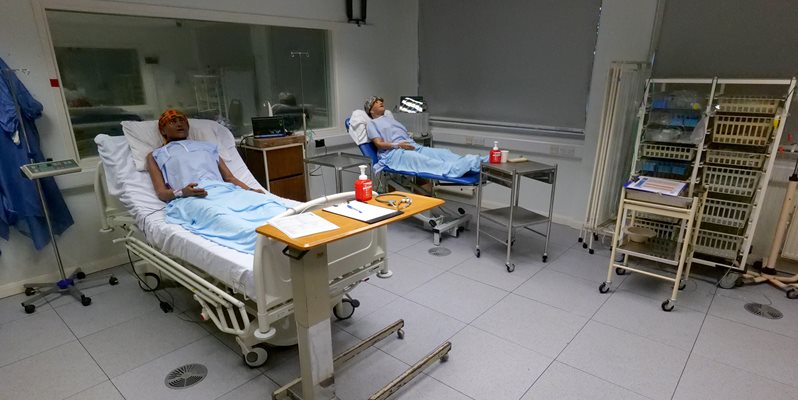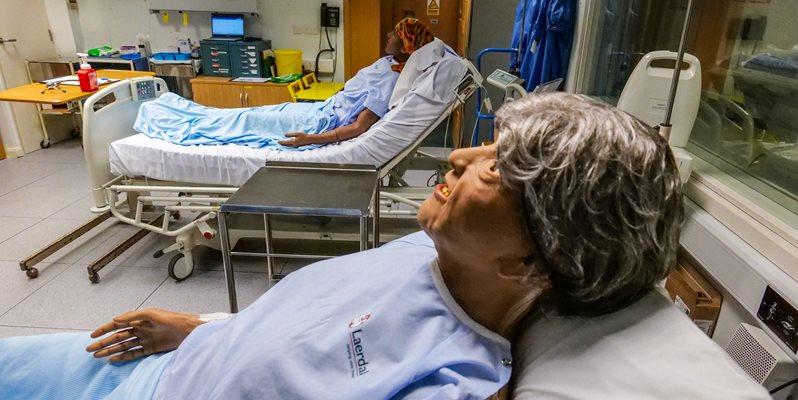Brighton and Sussex Medical School (BSMS) has unveiled a major upgrade to its simulation suite, introducing new, high-quality mannequins and digital systems designed to improve the realism and accessibility of medical training for students.
Simulation has been an integral part of BSMS teaching since the school opened in 2003. Early mannequins, originally developed for the US military, were large, technically complex and limited in diversity – often representing only one body type, gender and ethnicity. The new generation of mannequins reflects significant advances in design, providing a more realistic and inclusive learning experience.
“Clinical simulation does not necessarily need mannequins that do everything – students need models that help them master the essentials,” explains Helen Flanagan, Clinical Skills & Simulation Lead at BSMS. “By focusing on core skills – communication, assessment, level of response and consciousness – we’re giving students the foundation they need to practise medicine confidently and safely.”
The two new mannequins, based in the simulation suite in the Watson Building, University of Brighton Falmer campus, offer realistic chest movement, accurate pulse points and integrated chest speakers that replicate heart and lung sounds. They also include clear visual indicators of levels of consciousness, allowing students to assess and respond as they would in a real clinical setting.

The simulation suite itself has been redesigned to resemble a functioning hospital ward, complete with a new digital patient record system. Previously reliant on paper-based notes, students can now record and access patient information in real time – mirroring the digital systems used in hospitals. The platform also connects to hospital clinical guidelines, the BNF and MicroGuide, allowing students to look up medication information and antibiotic guidance instantly.
“This upgrade makes training more authentic, immersive and interactive,” says Helen. “It’s aligned with how resident doctors actually work and helps our students build confidence in managing patients in real-world scenarios.”
Few medical schools in the UK offer this level of integration between digital records and simulation-based training. BSMS plans to expand access to the suite, giving students from Years 3-5 more opportunities to develop clinical and communication skills in a safe, supportive environment.
The investment reflects BSMS’s ongoing commitment to innovation in medical education and to ensuring that students graduate with not only clinical excellence but also the confidence and practical experience to deliver outstanding patient care.
